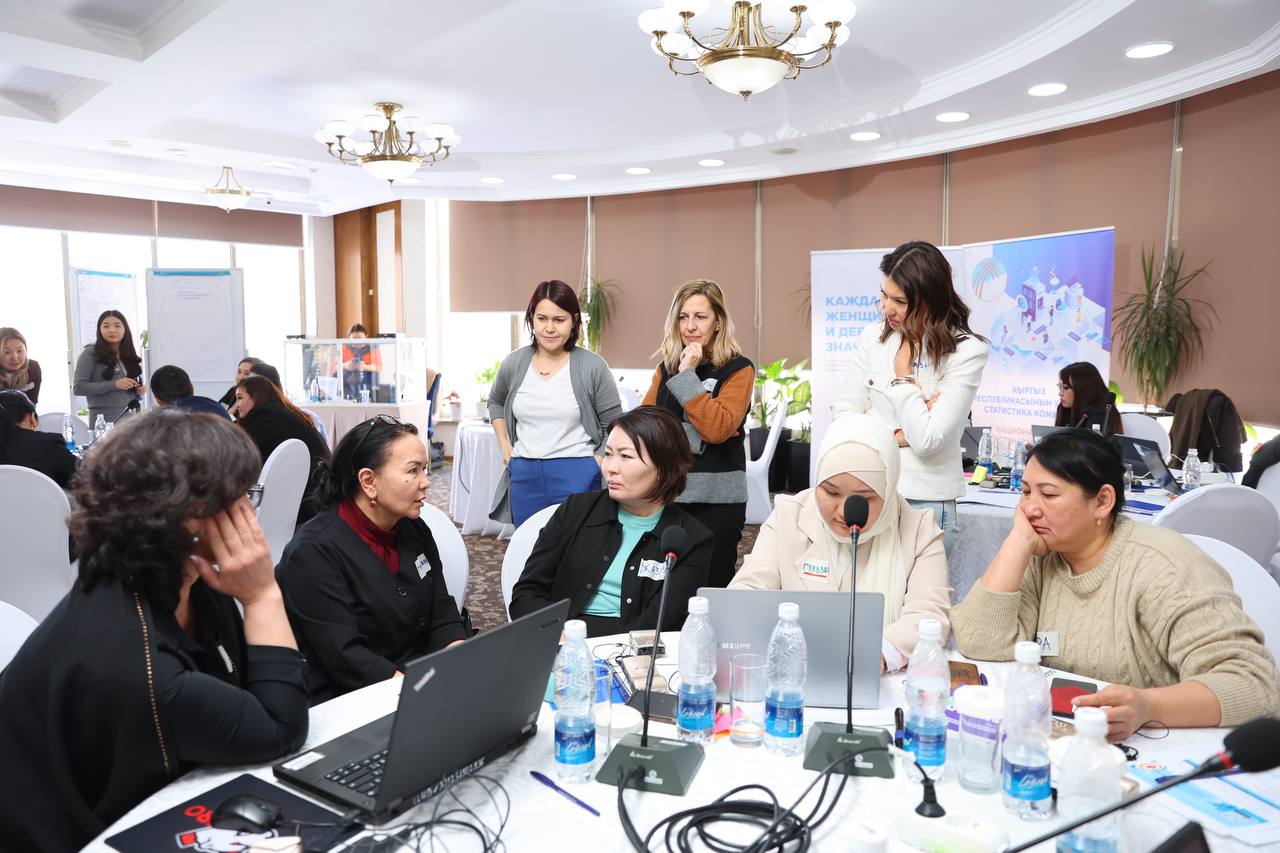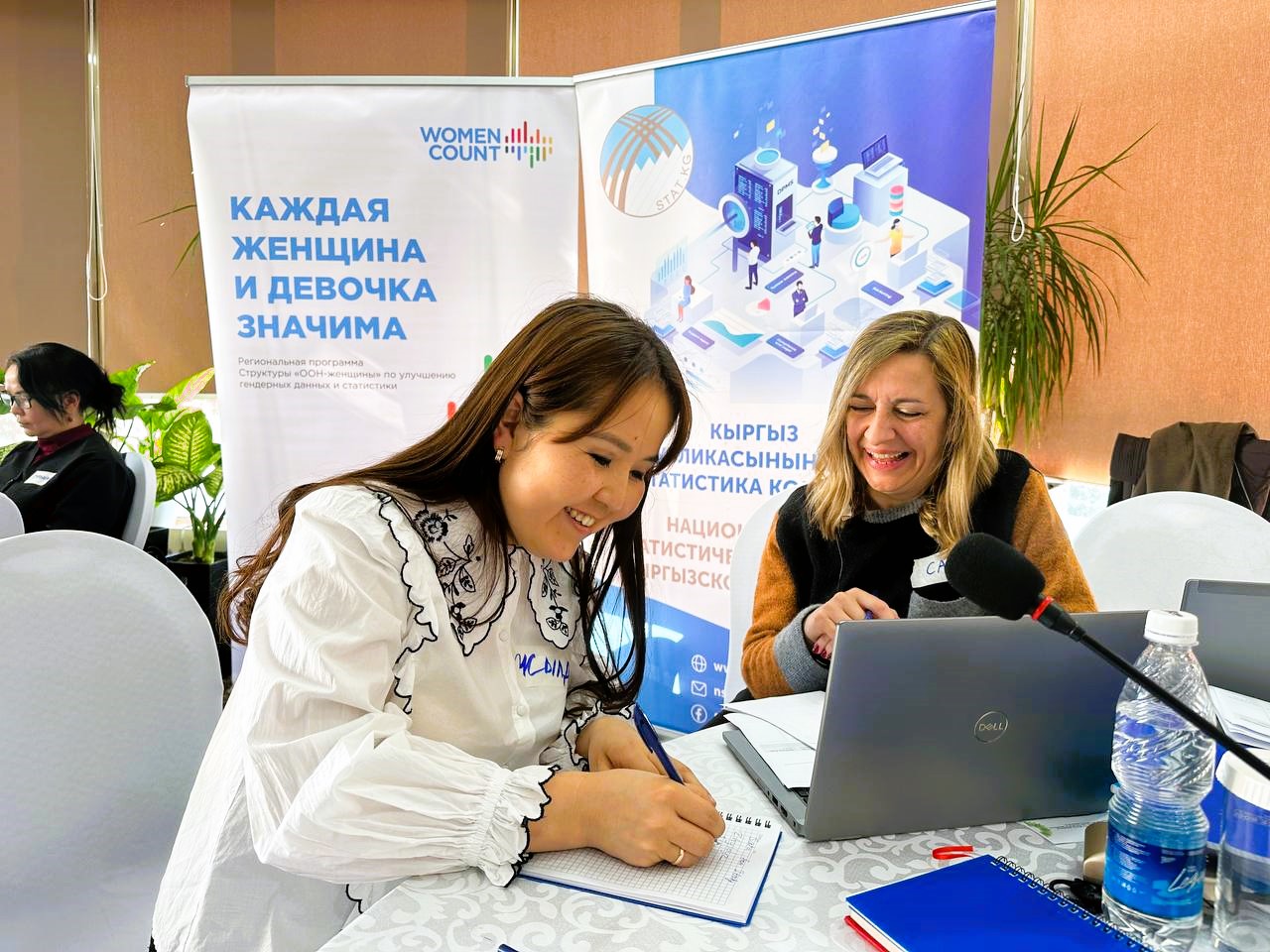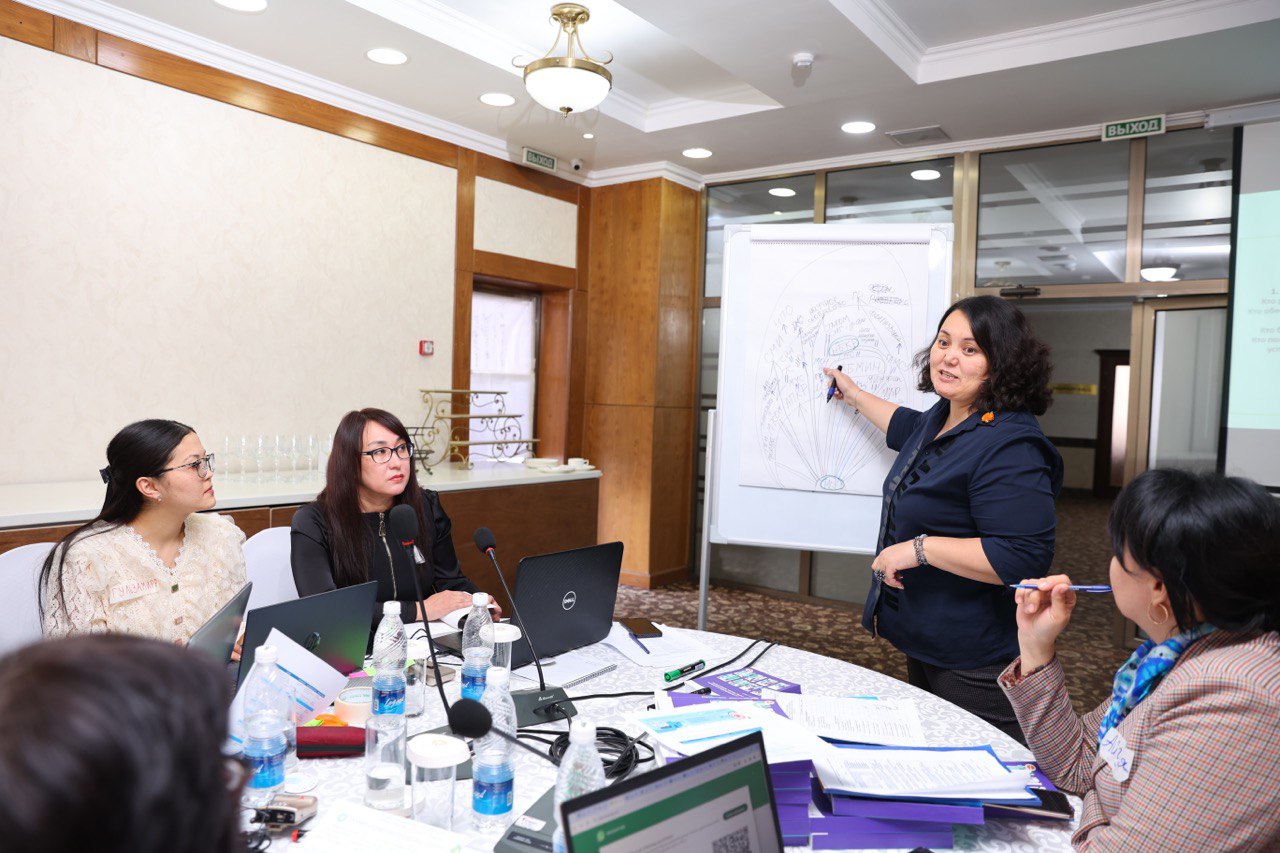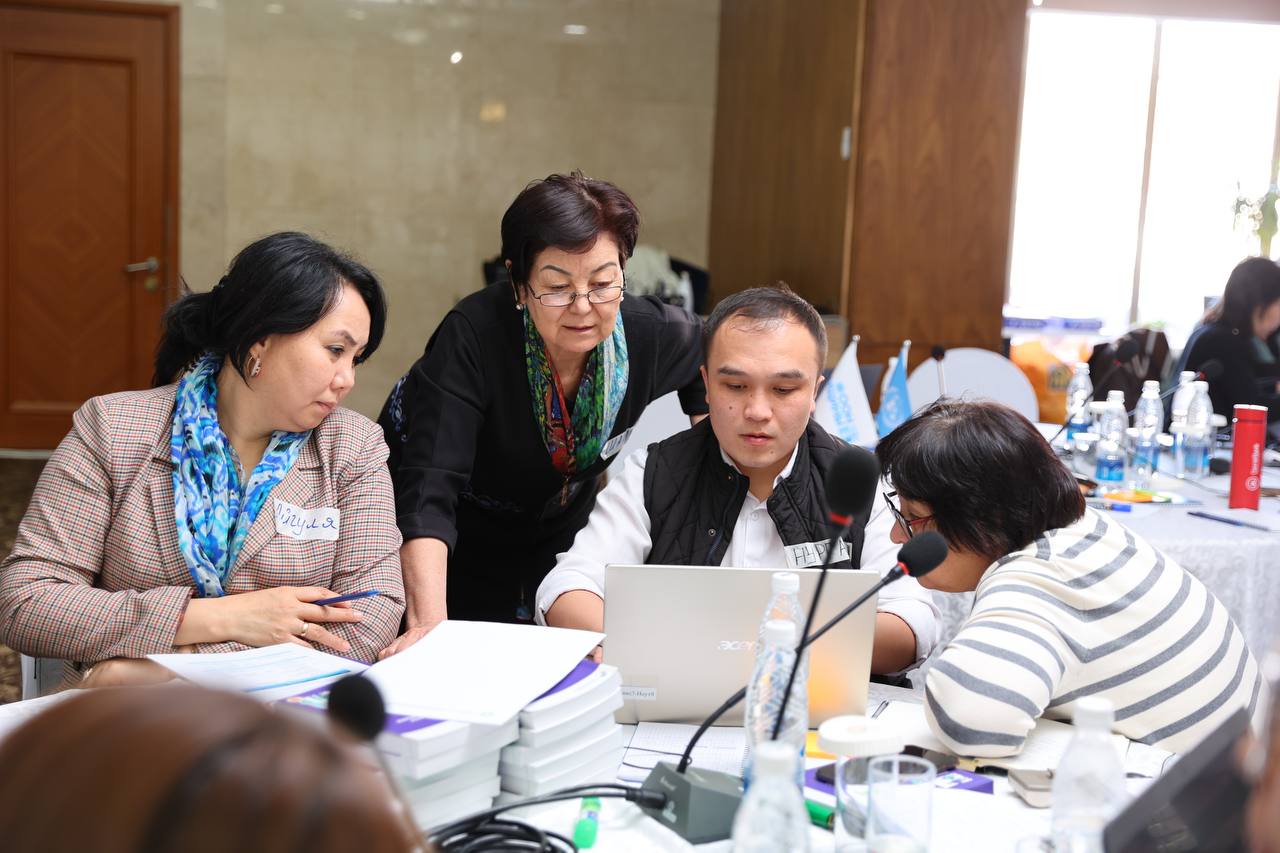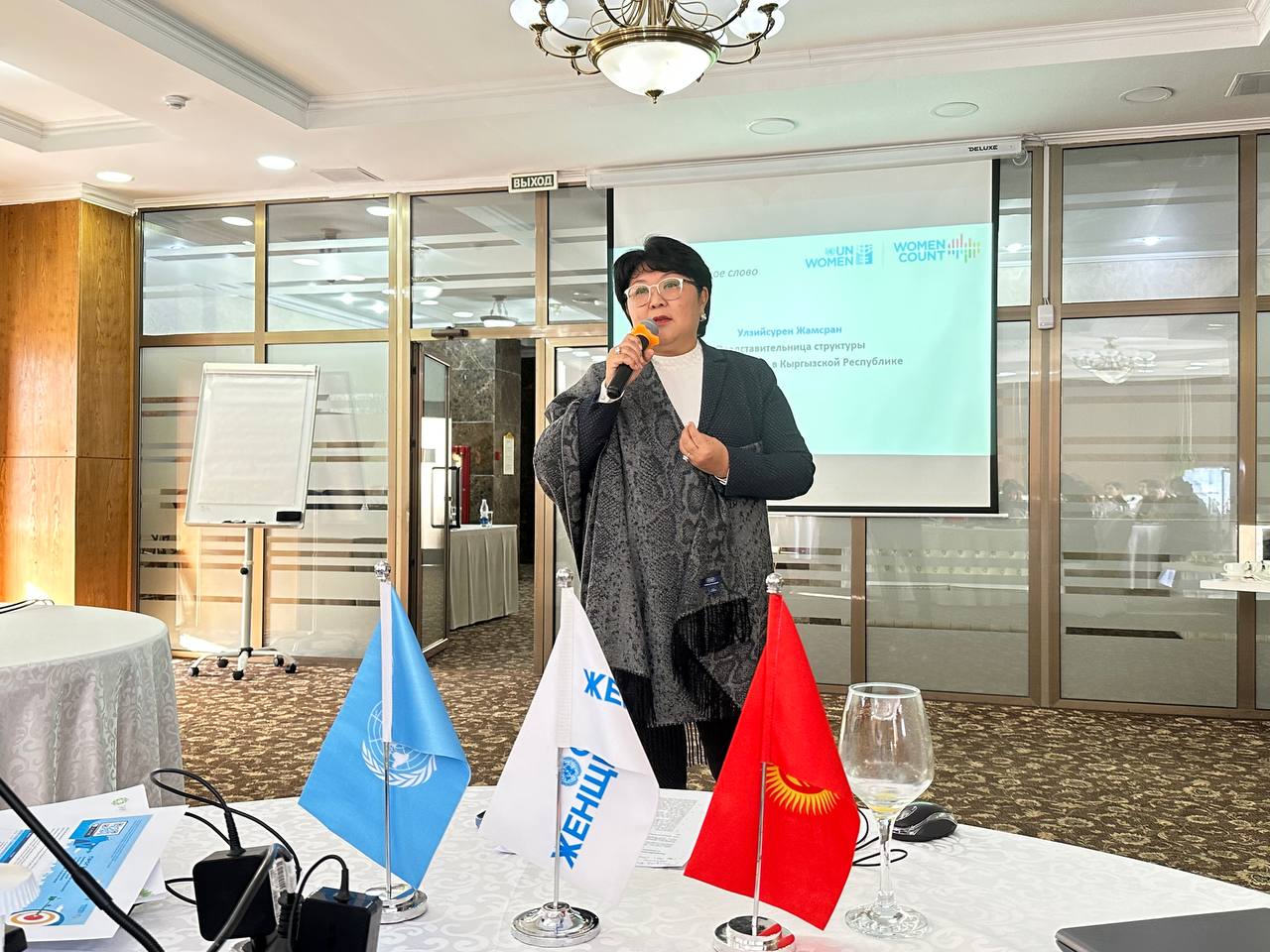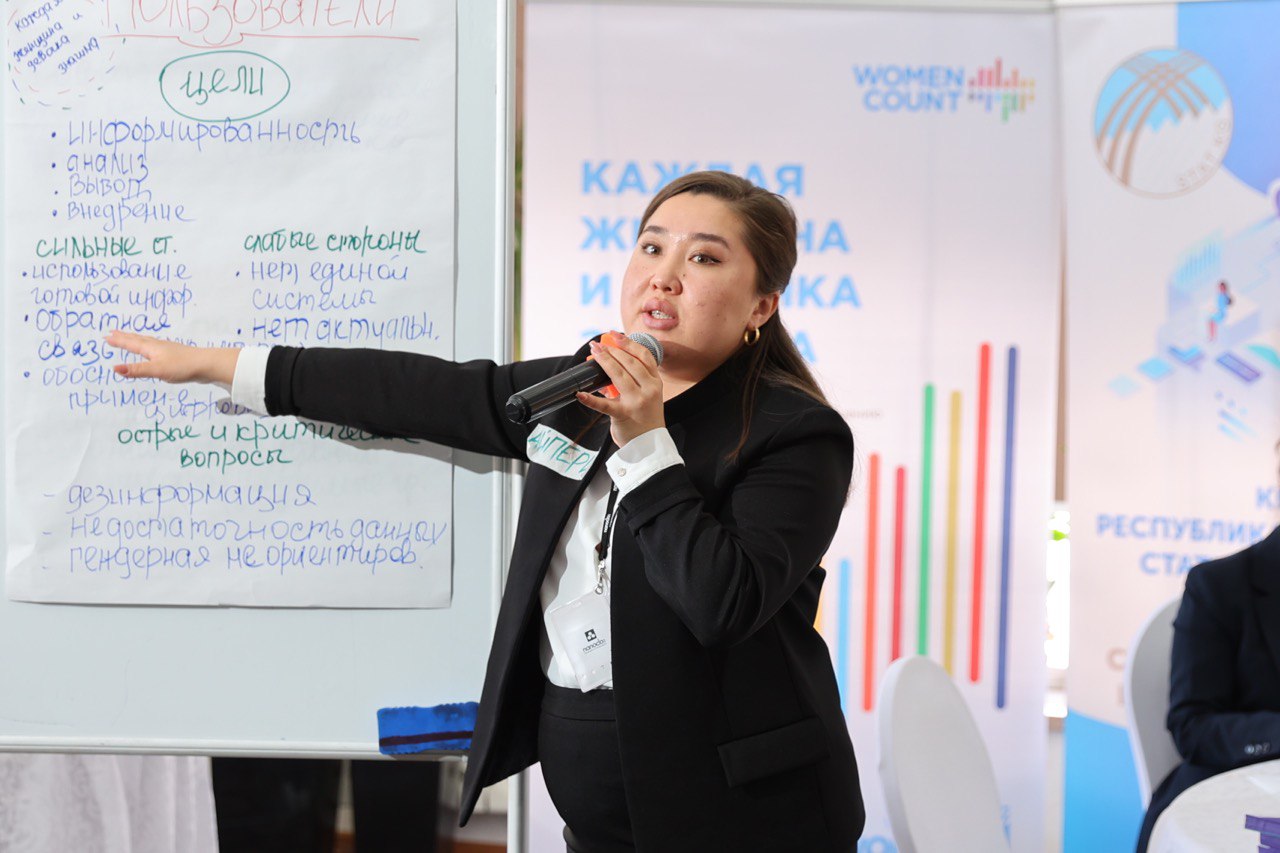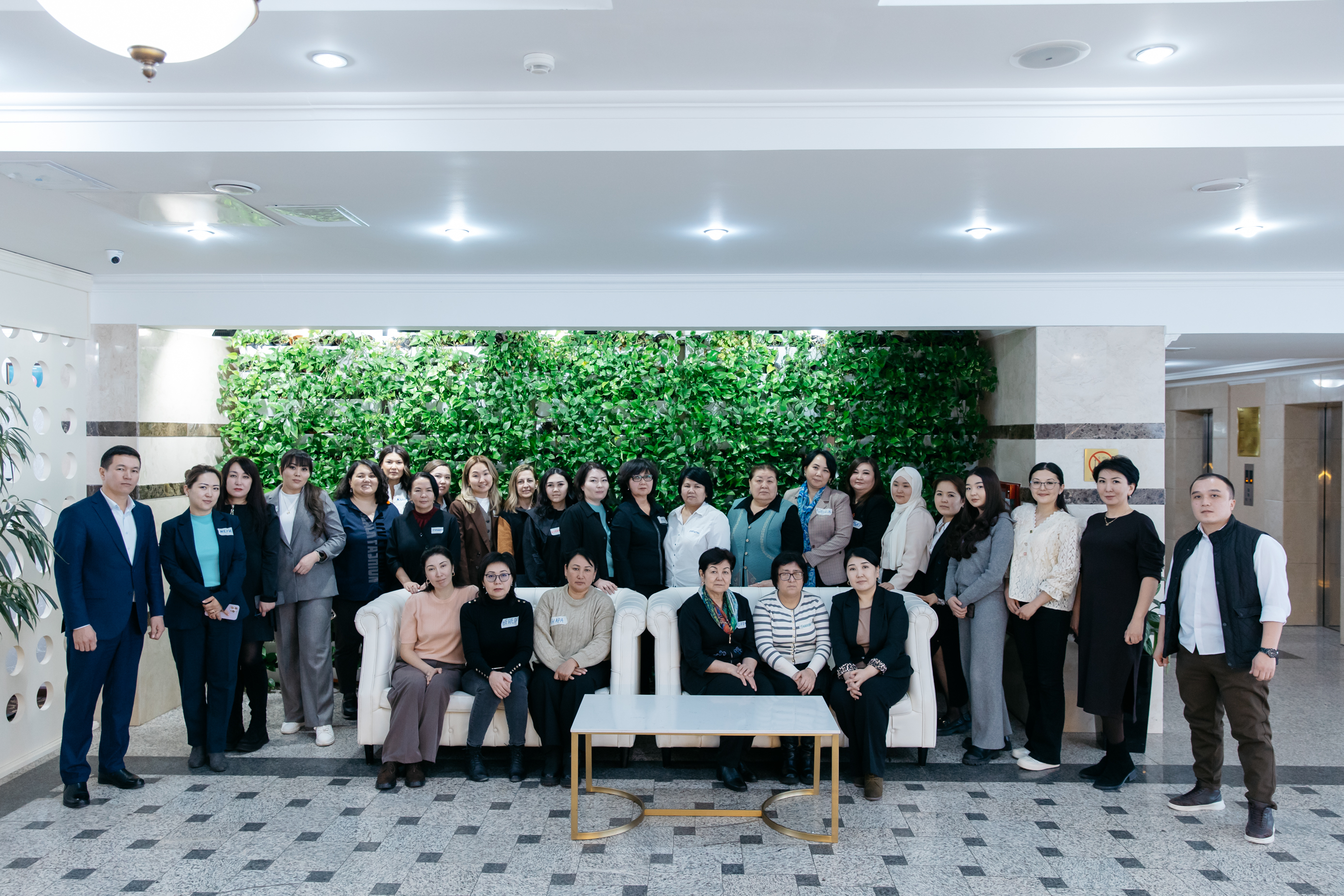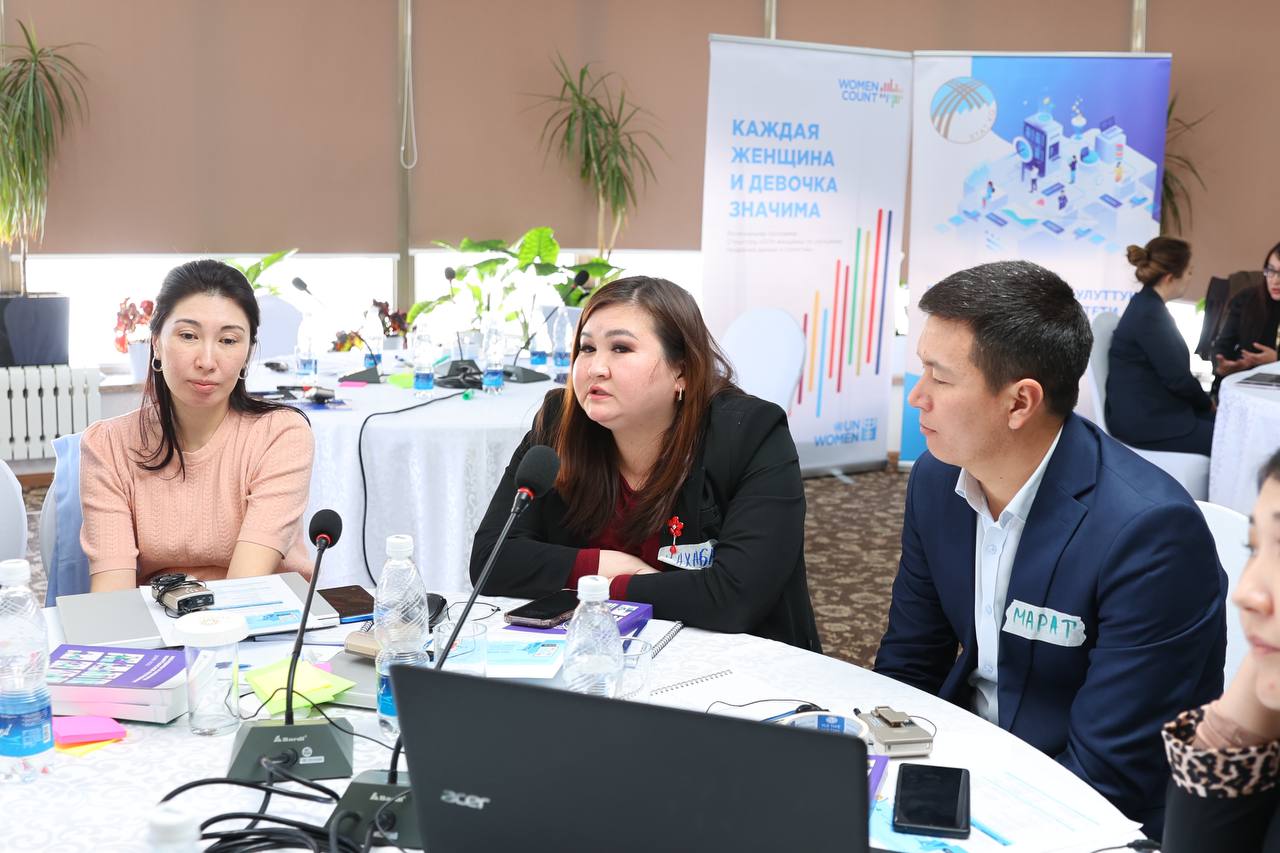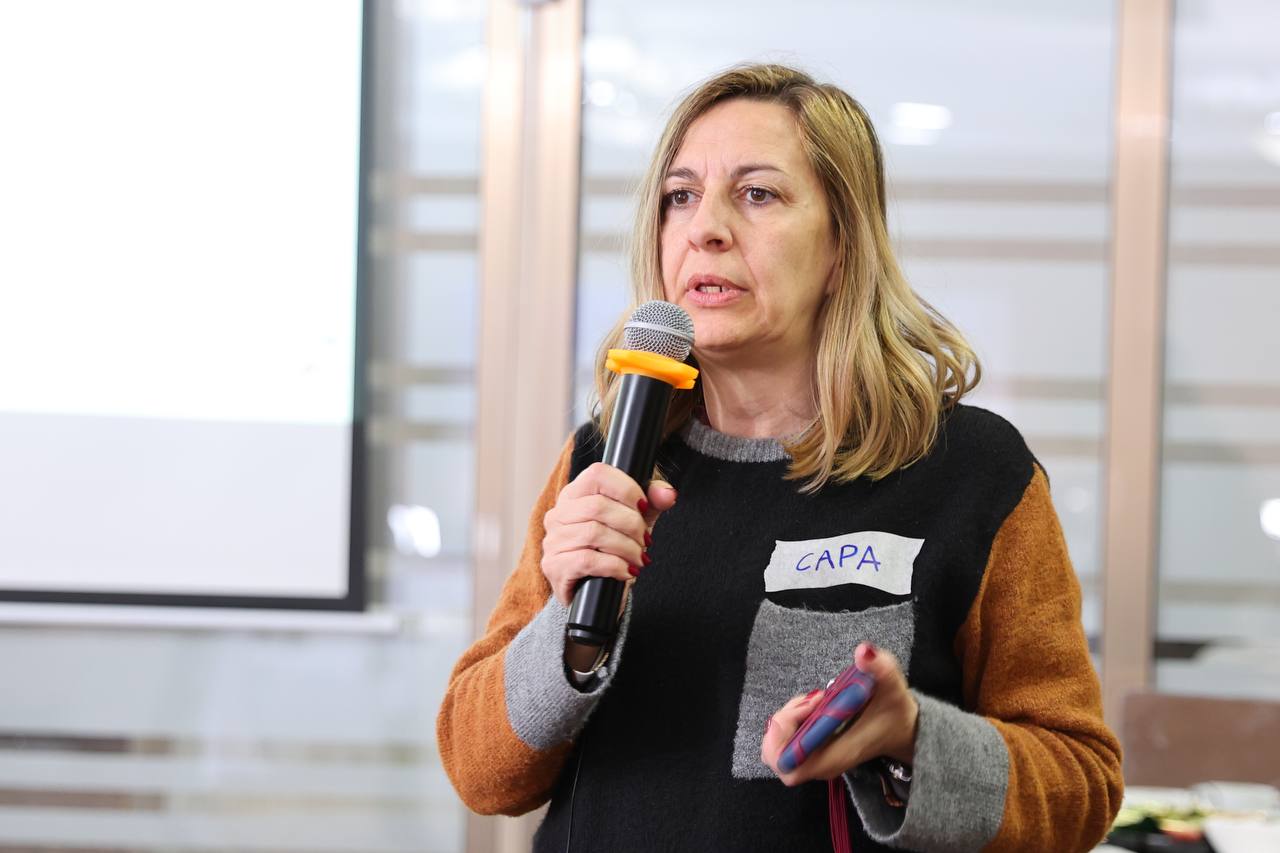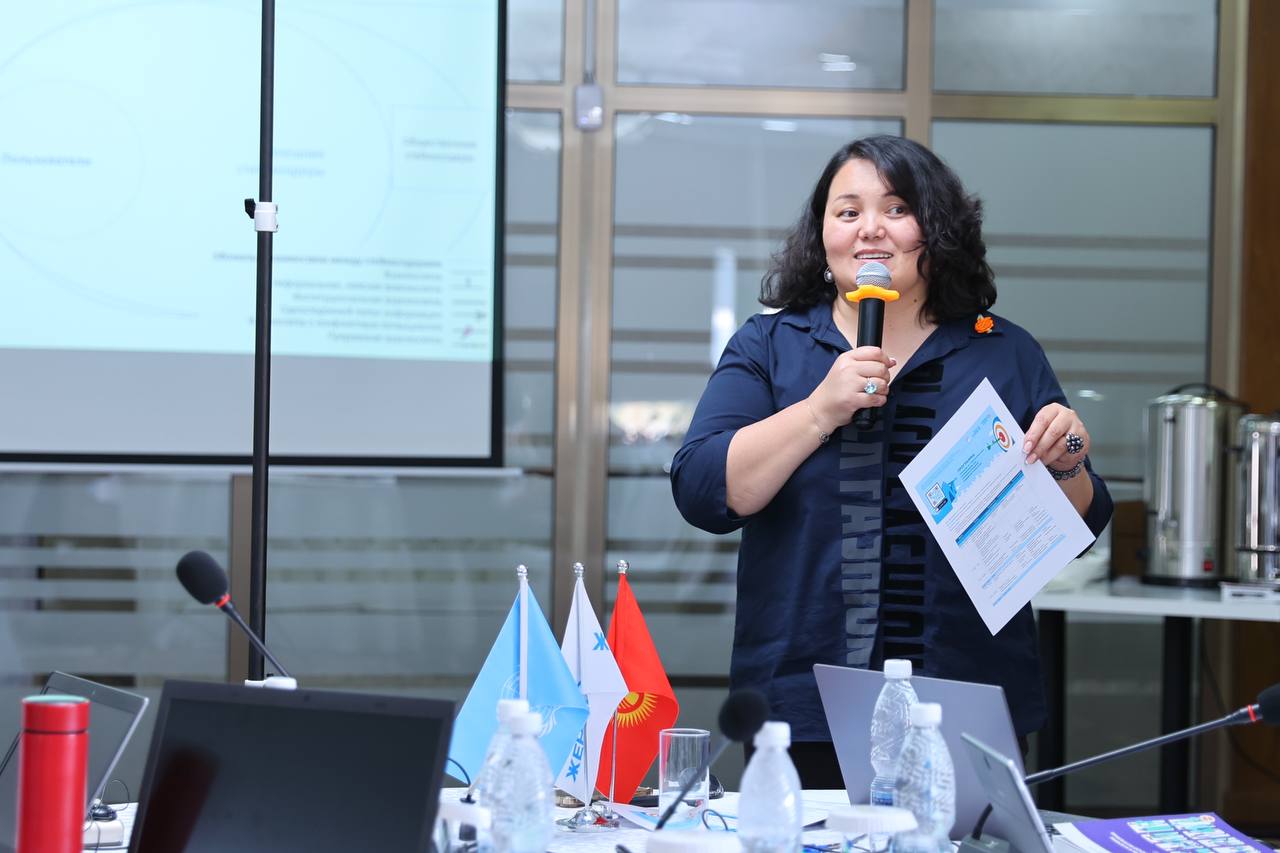On the road to gender equality: Kyrgyzstan continues to integrate gender-sensitive indicators into national strategies and plans
Date:
From 5 to 7 March 2024, the National Statistical Committee of the Kyrgyz Republic, in collaboration with the UN Women Regional Office for Europe and Central Asia, convened a workshop on strategic planning for improving the production, analysis, and dissemination of gender statistics in Kyrgyzstan. The workshop brought together more than 30 representatives of state bodies and non-governmental organizations - members of an inter-agency working group on gender statistics.
Kyrgyzstan's national statistics system has made significant strides in producing 38 of the 51 indicators outlined in the UN Minimum Set of Gender Indicators. In a collaborative effort with UN Women and Partnership in Statistics for Development in the 21st Century (PARIS21), the National Statistical Committee conducted an assessment of gender statistics in the Kyrgyz Republic in 2021. The findings from this assessment played a crucial role in shaping the Medium-term Programme for Development of Official Statistics of the Kyrgyz Republic for 2022–2026. In September 2022, the Cabinet of Ministers of Kyrgyzstan approved a long-term National Strategy for Gender Equality until 2030 and its National Action Plan for 2022–2024. These policy documents outline specific measures aimed at standardizing national gender statistics and aligning indicators with international obligations (goal 13). These strategic documents aim to emphasize the importance of building a gender-sensitive statistical system and enhance reporting on the Sustainable Development Goals.
“Kyrgyzstan needs national standards on gender statistics in line with the international recommendations, which would guide the government institutions on streamlining the work to improving gender statistics,” underlined Marat Kalchabaev, the Referent of the Judicial Statistics Analysis Sector of the Supreme Court of the Kyrgyz Republic, during the workshop.
The three-day workshop was designed to establish a vision, strategic priorities, and objectives for enhancing the production, dissemination, and uptake of gender data. These are crucial components of the forthcoming National Gender Statistics Roadmap and Gender Equality Indicators Framework, which will monitor the country’s progress towards gender equality. The application of design thinking tools during the workshop fostered a productive dialogue between data producers and users. This was achieved by cultivating empathy and collaboratively identifying solutions to enhance the processes of gender data production and use.
“Strategic planning of gender statistics is key to the effective production, dissemination, and use of data to inform decision-makers and close gender gaps through data-driven policies,” highlighted Sara Defomonti, Head of Directorate for Strategic Planning at the Italian National Institute of Statistics, UN Women International Consultant.
The workshop enhanced the inter-agency collaboration between the National Statistical Committee and other data producers and users of gender statistics in Kyrgyzstan. It also underscored the critical role of gender data in the formulation of key strategic documents in the realm of gender equality.
The event was organized as part of the UN Women regional programme on improving gender statistics in Europe and Central Asia “Making Every Woman and Girl Count”.
